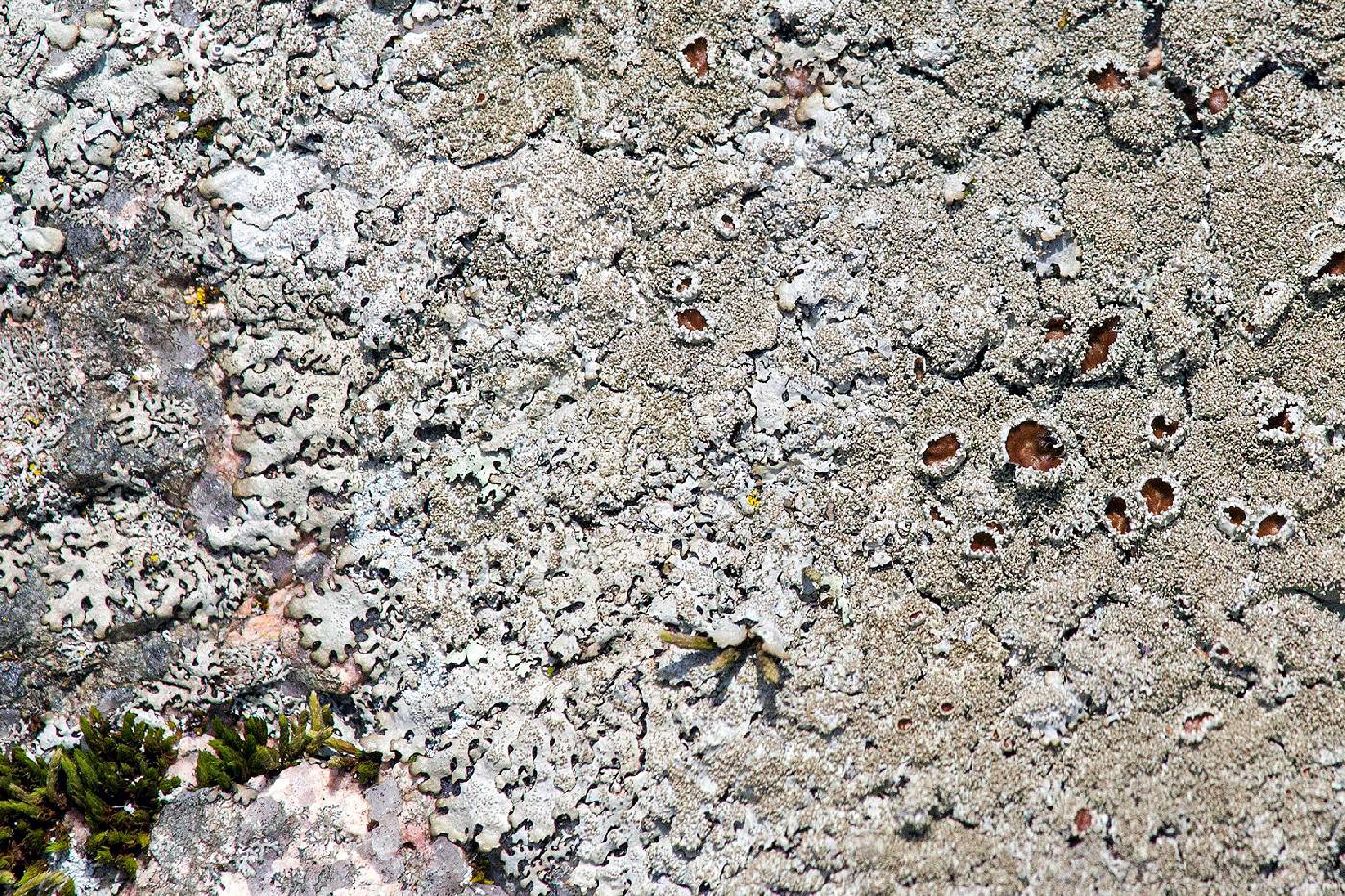
Consortium of Lichen Herbaria
- building a Global Consortium of Bryophytes and Lichens as keystones of cryptobiotic communities -
- Home
- Search
- Images
- Species Checklists
- US States: O-Z >
- US National Parks
- Central America
- South America
- US National Parks
- Southern Subpolar Region
|
Family: Parmeliaceae |
Nash, T.H., Ryan, B.D., Gries, C., Bungartz, F., (eds.) 2002. Lichen Flora of the Greater Sonoran Desert Region. Vol 1. Life habit: lichenized Thallus: foliose, ± circular, 5-10 cm diam., loosely adnate to adnate, subdichotomously to irregularly lobate lobes: usually subirregular, sometimes sublinear, 1-4 mm wide, lobe tips subrotund to rotund, ciliate; cilia: simple, in axils of lobes upper surface: gray, sometimes with a yellowish tinge or pale greenish white, emaculate or with simple maculae; with or without soredia or isidia; pseudocyphellae: absent upper cortex: fragile, pored epicortex, palisade plectenchymatous medulla: at least partially pale yellow, yellow-orange or orange-red; cell walls: containing isolichenan photobionts: primary one a Trebouxia, secondary photobiont absent lower surface: black, moderately to densely rhizinate; rhizines: black, simple, sparsely furcated or squarrose Ascomata: apothecial, laminal, sessile to subpedicellate; disc: imperforate, brown to dark brown; exciple: gray or hyaline; epihymenium: light brown; hypothecium: hyaline asci: lecanoral, with thickened wall layers apically, with divergent axial body towards apex; apex: amyloid ascospores: c. 8 per ascus, spores simple, broadly ellipsoid, 8-15 x 5-8 µm Conidiomata: pycnidial, laminal, immersed conidia: bacilliform or weakly bifusiform, 4-7 x 1 µm Secondary metabolites: upper cortex with atranorin, chloroatranorin and secalonic acides; medulla with ß-orcinol depsidones, hopane triterpenes and secalonic acids Geography: temperate and tropical regions with a distribution center in Japan Substrate: on bark, rarely rock. Notes: This genus is segregated from Parmelina, from which it differs in having a yellow or orange medulla, slightly larger ascospores, and at least partly squarrose rhizines. Also it contains secalonic acids and lacks lecanoric acid. Another segregatge, Parmelinopsis, has simple and dichotomously branched rhizines, a white medulla, and lacks secalonic acid derivatives and hopane triterpenes. |
Powered by Symbiota









